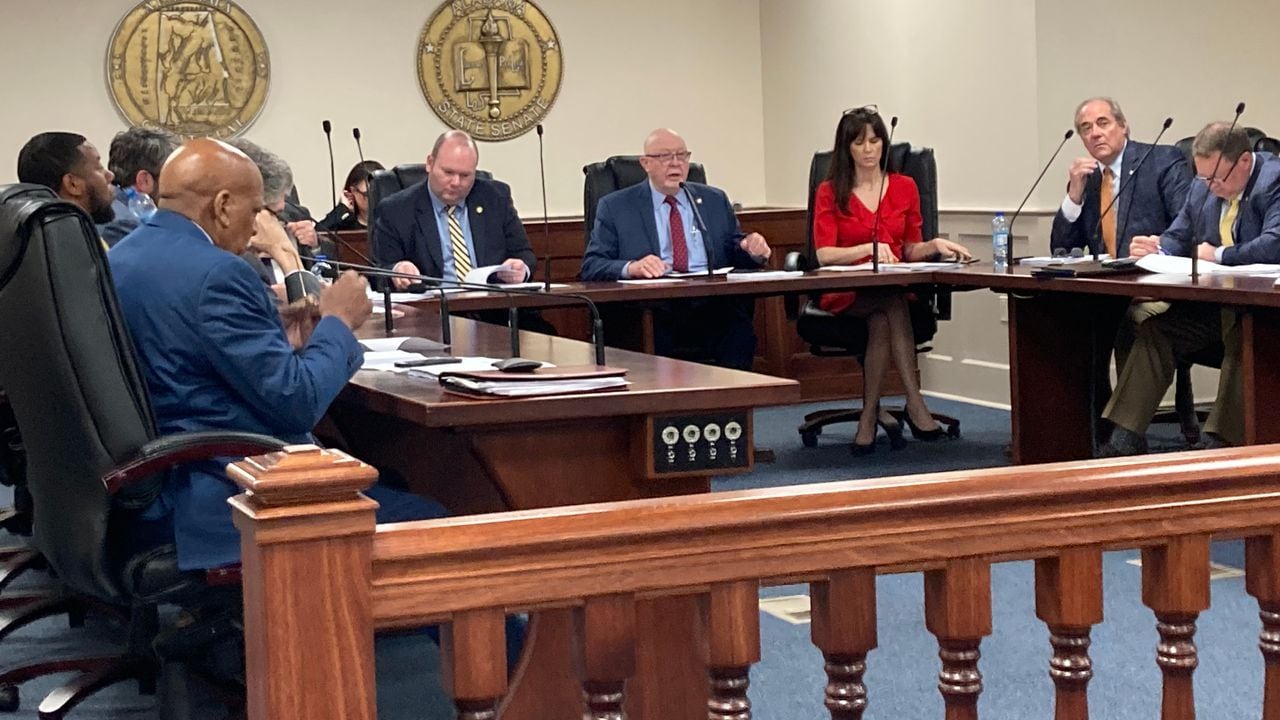Why did election date change on Alabama lottery proposal? How much will it cost?
Many things changed in a new, scaled-back version of an Alabama lottery and gambling bill approved Tuesday by a state Senate committee.
That includes the date of the election for voters to decide whether to approve the plan in a constitutional amendment.
The bill that passed the House three weeks ago set the vote for the general election on Nov. 5.
The plan approved by the Senate Tourism Committee on Tuesday changed that to a special election on Sept. 10.
Why the change?
Sen. Greg Albritton, R-Atmore, who is trying to steer the legislation through the Senate, said the date change, like other changes, was mostly to round up enough votes to pass the bill. Three-fifths of the Senate, 21 of 35 members, are required to pass a constitutional amendment.
Sen. Randy Price, R-Opelika, chair of the Tourism Committee, said senators raised concerns about having the lottery vote on the same day as the general election.
“That was something that we heard from quite a few different members,” Price said.
Asked specifically if the concern was that having the lottery question on the ballot would drive up Democratic turnout in November, Price would not say.
“That I couldn’t tell you,” Price said.
Rep. Kelvin Lawrence, D-Hayneville, said he believes the date was changed because of concerns that the lottery question would drive up Democratic turnout for the general election in the 2nd congressional district, which was redrawn by a federal court to be more favorable to Democrats.
“I think it was politically motivated,” Lawrence said. “They feel that with the Congressional (District) 2 race on the ballot it’s a motivation for Democrats to come out and vote for something that they’ve been yearning for since Gov. Siegelman proposed a lottery (in 1999).”
There are national stakes in the 2nd District race. A Democratic flip would pose a threat to the Republicans’ slim control of the U.S. House.
The fiscal note attached to the bill estimates a special election would cost about $5 million. The bill says the cost would be repaid to the state General Fund from gambling revenues.
House Minority Leader Anthony Daniels of Huntsville, who came in second in Tuesday’s Democratic primary in the 2nd District, also said he believes the date change is an effort to influence the race. Daniels will face Shomari Figures in a runoff on April 16 for the Democratic nomination. The winner will face the winner of a Republican runoff between Dick Brewbaker and Caroleene Dobson.
“I’m sure that’s the Anthony Daniels amendment,” Daniels said of the date change. “I’m sure they were targeting me on that one. They’re fearful of the elections being motivation of more Democrats coming out.”
Daniels, who was speaking at an Alabama news conference with other members of the House Democratic caucus, said he believes Democratic voters will be more motivated by the Republicans’ response to the crisis over in vitro fertilization than the gambling legislation.
A Feb. 16 ruling by the Alabama Supreme Court that frozen embryos stored by clinics have the legal status of children for purposes of civil liability under the state’s wrongful death of a minor law has caused several IVF clinics to pause services because of the legal risks. The Legislature has scrambled to pass a bill to provide the clinics some immunity, and a Republican-sponsored bill is in position for final passage on Wednesday.
The bills have had bipartisan support, but Democrats say it doesn’t go far enough. Daniels introduced legislation that would specify that embryos outside the womb are not considered children.
Republican lawmakers sponsoring the bill acknowledge that they might not be a final solution but said they are seeking a way to allow the clinics to resume providing services.
All 28 members of the Alabama House Democratic caucus voted in favor of the gambling legislation approved by the House three weeks ago, a key factor in it passing the House by a vote of 70-32.
Daniels said he does not expect the caucus to support the changes to the gambling plan made by the Senate.
The House plan would have allowed up to seven new casinos with full Las Vegas-style games, as well as sports betting at the facilities and online.
The Senate plan does not include sports betting. Casino games would be limited to the Poarch Band of Creek Indians’ three casinos on tribal lands in Atmore, Wetumpka, and Montgomery, and that would depend on the governor negotiating a contract with the tribe.
In addition to the lottery, the Senate plan would allow pari-mutuel betting at the former greyhound tracks in Jefferson, Greene, Macon, and Mobile counties, as well as facilities in Lowndes County and Houston County.
“You will probably have little to no support from our caucus until the bill changes back to its original form and there are conversations taking place with us and we’re involved in those conversations,” Daniels said. “They’re not going to bake a cake and make us eat it.”
Price, chair of the Tourism Committee, said the revisions to the legislation were to find a compromise that could pass the Senate. He said the issue of lost revenue is especially important in his Senate district, which borders Georgia.
“We’re losing millions of dollars every year that are going across the state line as far as lottery tickets,” Price said. ”I’ve heard from quite a few of my mayors that they’re losing a lot of revenue because a lot of times when people go across that state line, why they are there, they buy groceries, do other things. But what drove them across that state line was to buy that lottery ticket.”
Albritton said he expects the Senate to consider the legislation on Thursday.
